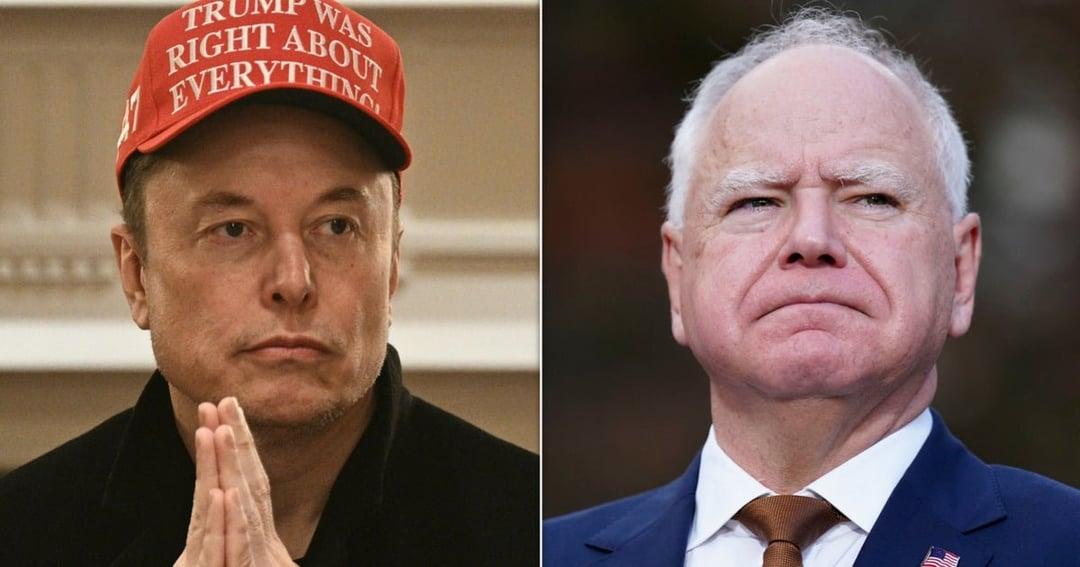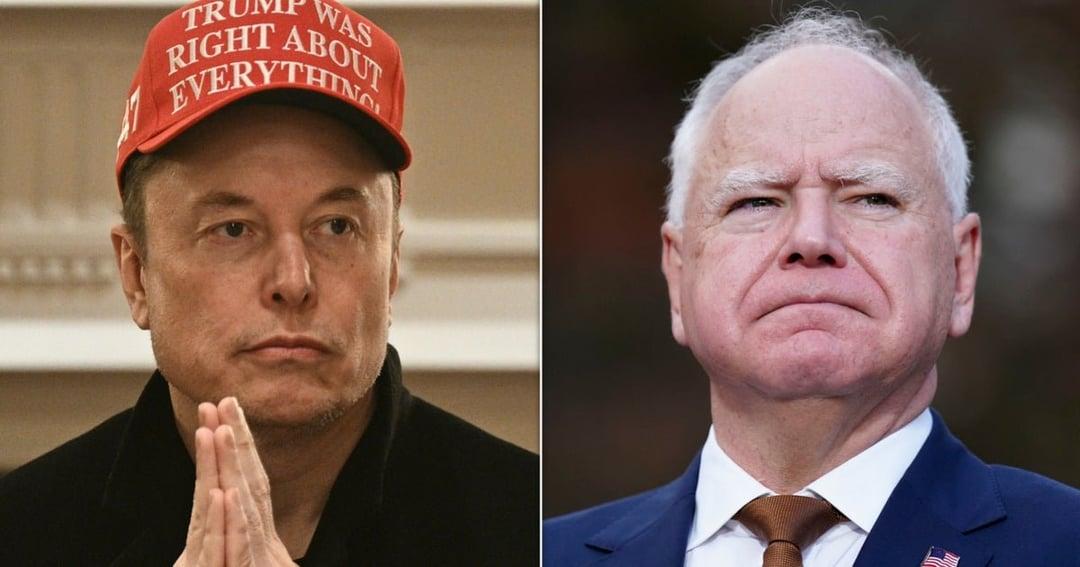Minnesota Governor Tim Walz made headlines this week after delivering a blistering critique of Elon Musk during a public appearance, igniting a fresh wave of political and cultural debate surrounding wealth, accountability, and the social safety net. The moment came during a discussion about state welfare programs, where Walz drew a provocative comparison between the scrutiny applied to low-income Americans and the apparent lack of oversight on billionaires like Musk. His remarks, both sarcastic and cutting, quickly went viral.

“Isn’t it funny,” Walz said to a room of supporters, “that they want to drug test SNAP recipients, but not that dude?” The “dude” in question was Elon Musk, the CEO of Tesla, SpaceX, and X (formerly Twitter), who has been the subject of both reverence and criticism in recent years for his unpredictable behavior and massive influence in business and politics. Walz added, “Elon finally quit… again,” referencing what appeared to be Musk stepping down—or threatening to—once more from one of his companies, a pattern that has grown familiar to observers of his often tumultuous leadership style.

Walz’s comments come amid renewed discussions in several states about implementing or enforcing drug testing policies for recipients of SNAP (Supplemental Nutrition Assistance Program), commonly known as food stamps. Supporters of these policies argue that public assistance should not subsidize drug use, while opponents counter that such measures are invasive, stigmatizing, and often based on stereotypes rather than data.
The governor’s rhetorical question—why drug tests are demanded of poor families but not of billionaire CEOs with significant influence over markets and public life—struck a chord with many progressives and social justice advocates. They see it as highlighting a broader hypocrisy in how society polices poverty but rarely holds the powerful to the same standards. Musk, who has admitted to using substances like ketamine and has been reported to have a history of erratic behavior, including during high-stakes business deals and public events, has so far faced minimal legal or institutional scrutiny compared to the kind of oversight applied to welfare recipients.
Walz, a former high school teacher and congressman, is known for his folksy tone and populist leanings, and his comments are in keeping with a growing movement among Democrats pushing back against what they see as a two-tier system of justice—one for the rich and connected, another for everyone else. By invoking Musk’s name directly, Walz took aim at one of the most prominent faces of modern capitalism and digital culture, ensuring his remarks would reverberate beyond Minnesota.
The response was immediate. Supporters applauded the governor for calling out what they see as a glaring double standard in American policy and political discourse. Critics, however, accused him of engaging in cheap shots and unnecessarily politicizing a conversation that deserves serious treatment. Some conservatives responded by defending Musk, arguing that his accomplishments in the electric vehicle and space industries have done more for the country than many politicians ever have. Others simply dismissed Walz’s remarks as political theater.
For his part, Musk has not yet responded to Walz’s comments, though he has often taken to social media to push back against critics in the past. In previous instances, Musk has portrayed attacks from political figures as ideologically driven or uninformed, casting himself as a target for speaking freely or disrupting entrenched systems. Whether he chooses to engage this time remains to be seen, but given his history, a public retort would not be surprising.
Beyond the personalities involved, the moment underscores a deeper national debate: who is subjected to scrutiny and control in American society, and who is allowed to operate above it. The contrast drawn by Walz—between those receiving public aid and those commanding massive public contracts and social influence—raises uncomfortable but pressing questions about fairness, accountability, and societal values.
As the country barrels toward another contentious election year, these kinds of cultural flashpoints may become more common. And in an era where a single soundbite can dominate the news cycle, Walz’s jab at Musk may resonate well beyond its original audience, fueling conversations in state houses, cable news studios, and kitchen tables alike.






